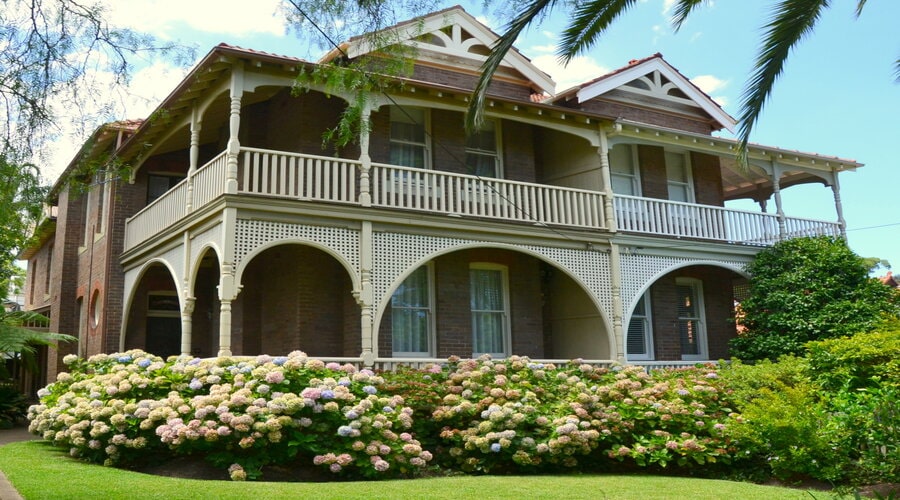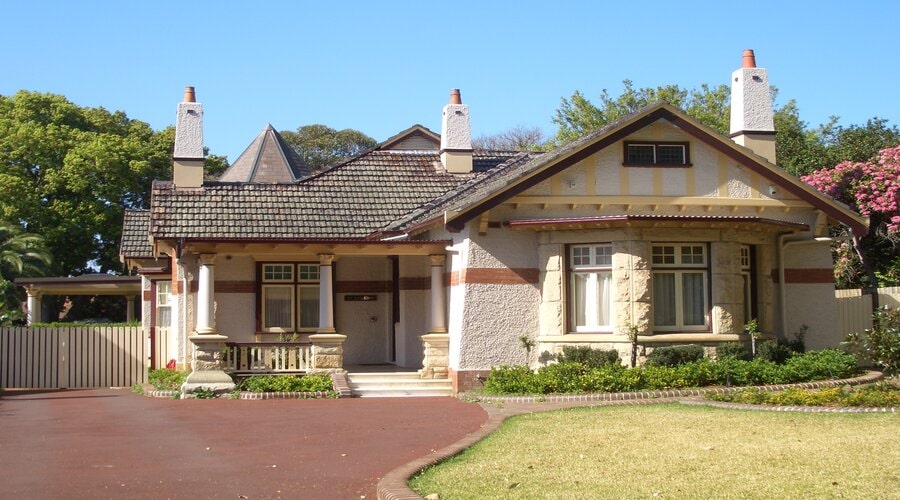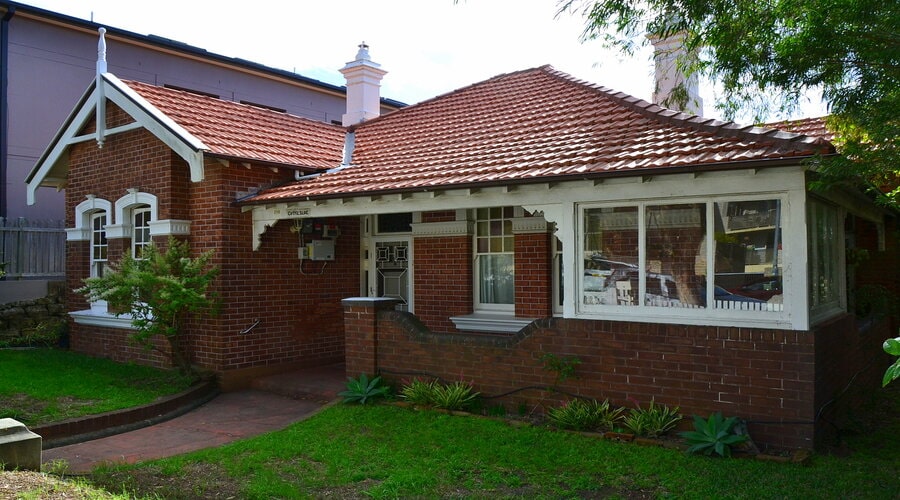How to Renovate a Heritage Home

Heritage houses are an inseparable part of our history, culture, and many who seek out these types of properties are looking to connect with Australia’s past. With their distinctive architectural and unusual materials, heritage houses are a sight to behold. Still, they can come with its own challenges when looking to turn this historical landmark into a home.
While renovating your heritage home may be hard to navigate, with the proper planning and strategy, you’ll successfully transform your vintage home while keeping the historically protected values.
In this article, we’ll cover the key points to consider when looking to renovate your heritage home.
1.Know your architectural styles

'Derry', a good example of Federation Filigree in Neutral Bay, New South Wales
Heritage in this content means that some part of your home has been deemed worth preserving for future generations. Whether it’s the location, the architecture, or the materials something has been linked to a broader historical and cultural context.
The first step to renovating these properties is to understand exactly why the building has been listed as heritage, as this will act as your guideline when it comes to restoring and renovating the site.
For example, one of Australians most common heritage buildings is the Federation style, as this showcases Australia’s adaptation of Edwardian architecture. You can differentiate this architectural style by the red brick exterior, long central corridor, tessellated tiles, and roofs with slate or terracotta tiles.
Other architectural styles include:
Tudor style houses Built-in throughout the Victorian era; these buildings have key design features from the medieval period itself. These design features include - half-timbering, highly decorated chimneys, and stone porte-cochere.
Art Deco is another unique architectural style of an Australian heritage building with its geometric elements, decorative brickwork, timber-veneer wall panelling and chevron patterns. The art and design movement the 1920s to 1930s has a significant influence on the architectural perspective we have today.
While not all heritage houses will have clear architectural markers, it’s essential to understand if the overall style of your house does play a role in its protection. Understanding the architectural style will also help in finding professional builders who are registered to work in restoring or renovating your home.
2.Check original material and get an audit of the home
As mentioned above, materials can also play a considerable role in why your home is heritage listed. Before making any changes, have your house professionally audited to identify not only the protected materials or features but any other hazards to address when renovating such as:
- Possible pest infestation: Pests can often run rampant in old heritage houses; so a licensed pest control professional should be used to identify any problems.
- Condition of walls, floors and roofs: Checking the condition of walls, roofs and floors is an essential part of the whole house inspection process. Hire a professional to walk you through any possible issues and what producers to follow.
- Plumbing: Your plumbing system overlooked. Make sure to hire a professional to check the system and make any repairs if necessary.
- Electrical system: Much like plumbing systems, ensure someone thoroughly inspects your heritage homes wiring system.
3.Set a budget

If you’re planning to renovate your heritage house, you need to consider the costs of both custom materials and professionals needed to ensure that the listing is preserved. That’s why we recommend the following tips to help you plan your budget.
- Set the priorities: By performing your house inspection, you’ll have your scope of the work, so take this time to allocate a budget to the problems that directly impact your health and safety along with your top priorities.
- Get comparative prices where you can: When it comes to heritage houses, it’s too often that only one place will stock the material needed, or one electrician is licensed to work on that sort of circuit. That’s why we suggest doing your research and comparing prices when you do have a little more freedom to shop around for.
- Save restoration for last: Once you’re ensured a livable home, you can now work on any restoration projects. Spurge on some time appropriate carpet or door handles, but always ensure that there are funds in the emergency repair budget.
4.Amplify the old with new
There are many ways you can revitalise your old heritage house without taking away from its value, for example:
Highlight doors, windows and other features: Many heritage homes have unique materials, designs and features that can be shown off with a new coat of paint, or decorative items.
Mix traditional and contemporary periods: Decorate your space by Incorporating modern design trends, such as minimalism.
5.Choose the right vintage colour scheme

When it comes to repainting your home, choosing the right colour
palette for your vintage interior can make all the difference. While, at
the same time, you’ll also need to consider the existing style and feel
of the house.
Picking the right colour palettes and sheen: When choosing the right colour palette it’s crucial to consult with a professional painter, as they’ll advise what colours can be used to fit the correct period and style.
6.Focus on the maximising energy-efficiency
As a heritage homeowner, an important step of renovating your home is to look for avenues to introduce sustainable living. Here are a few of our examples of areas to consider.
Sealing and insulating the house: Sealing and insulating is one of the easiest ways to make your renovated vintage house more energy-efficient and comfortable.
Installing a programmable thermostat: By installing a programmable thermostat, you can cut down the utility cost. A programmable thermostat allows heating and cooling appliances to be automatically turned off during non-peak hours.
Replacing energy-hungry fixtures: Consider replacing old incandescent lights with energy-saving options like LED lights. LEDs have longer lifespan can consume significantly less energy and are nontoxic.
7.Use credited and experienced contractors
As mentioned above, these heritage sites can’t be renovated by just anyone. Using the above repaint as an example, you’ll need to ensure the professional painter has not only an understanding of what colours fit the correct period but come with the right tools and equipment to protect and perverse your home.
When looking to renovate your home, be sure to only used experienced and Dulux accredited painters in Sydney as any damage to the listing will leave you with the fallout.
Renovating your heritage home, while seemingly daunting can be a rewarding experience when performed with care and handled by professionals. Once done, you’ll not only have a stunning home but play an active role in conserving a small piece of history! So remember renovating a heritage home is a long-term investment and one that will require professional inspection and consultation every step of the way.










